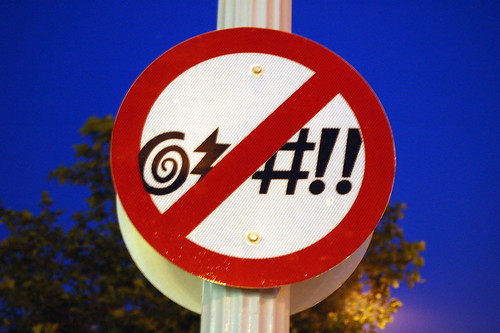A few years back, I wrote this post and it’s become evermore truer the older that I become. And so, on a Monday, I pose one question to you:
Do you believe that midlife is a four letter word?!

“The cultural narrative provided for women at midlife is either medical and menopause oriented — hot flashes, osteoporosis, heart disease, the estrogen replacement therapy decision — or socially devaluing –“empty nest,” a fertility has-been, abandoned for a younger woman, depressed.”
Wow! I read this introduction to a study that was published in the journal Social Work in the late 90’s and it got me thinking: what’s wrong with this picture?
Is midlife truly nature’s death sentence, a curse, a crumbling foundation foretelling a life well (or not so well) spent? When does this characterization become a self-fulfilling prophecy? And what can we do, as midlifers, to reverse this image? After all, change has to start somewhere, right?
A perfect place to initiate change is from a place within and a place outside of ourselves — by distinguishing ourselves from generations of women who came before us (for whom a self-view was often seen as selfish and whose opportunity to work outside the home was often trumped by the lack of quality positions) — and by asserting and reasserting our identities.
Are these steps in-line with the study findings?
The researchers, who investigated midlife experiences of 103 women between the ages of 40 and 59 reported the following:
- Respondents expressed high degrees of well-being, with 72.5% indicating that they were “very happy” or “happy,” and 64.3%, that this time was “not very confusing” or “not confusing at all.” However, despite being happy, many women still found this time of their lives challenging.
- Women who reported being most satisfied in their lives had a family income of at least $30,000 or more (which in today’s economy, is roughly equivalent to a little over $40,000), had good health, had at least one confidante or group of friends, had a high self-esteem, were not prone to self-denigration, and had a benign super ego.
One particular discovery that I find intriguing was that the groups scoring both the highest and lowest in midlife satisfaction unanimously agreed that what they liked best about midlife was increased independence and freedom, including freedom from worrying what others thought and freedom to develop a self-identity.
Not surprisingly, what women disliked the most about being middle-aged were physical changes, i.e. decreased energy, gray hair, wrinkles and extra weight.
Women scoring the highest in satisfaction and well-being also stated that they disliked the divide between how they saw themselves and how they imagined society saw them (positively and unattractive, respectively). Also at odds was the fact that they felt that men of the same age were revered for gray hair and wrinkles and did not lose social value in the same way that women did.
So, what are the biggest take-away messages?
- What matters most is not what women have but what they do with it
- Women actively participating in their lives and looking forward to new opportunities were the most satisfied
- Having a social world or at least one confidante with whom to speak freely and honestly about themselves, and feel understood, was critical
- Three selfs were also essential to wellbeing: self-effectance, self-acceptance and self-esteem
I know that certain things have changed since this study was published, such as the fact that research dollars are now being diverted away from simply looking at midlife changes in men and broadly applying the results across the genders, towards exploring midlife changes and how they specifically affect women’s health. What hasn’t changed, however, is the invisibility factor, that somehow, women over age 40 are no longer relevant.
So this is what I say:
Be relevant. Take the reins and effect change. Take a chance, a plunge. Value yourself. Embrace your friendships and your life. Grieve your former self and celebrate who are you are and who you will become.
Michelle Shocked once wrote “When I grow up, I want to be an old woman.”
When I grow up, I want to be. What about you?






